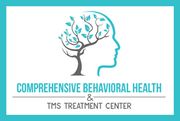Is Trichotillomania a Behavioral Health Condition?

Trichotillomania is a behavioral health condition when a person experiences strong impulses to pull out their hair. Fortunately, mental health professionals can help a person address the underlying issues causing this type of problem. By cultivating an awareness of the habit, as well as potentially discussing other anxieties to which it may be related, patients can put a stop to it. Continue reading to learn more.
What Is Trichotillomania? Understanding This Behavioral Health Condition
Symptoms
 People who suffer from this condition pull out their hair so frequently that the hair loss is often very noticeable. They usually experience some form of pleasure from the habit, which often takes the form of a relieved feeling. Although this is not always the case, sometimes, people with the condition also chew, manipulate, inspect, or otherwise focus on their hair in specific ways both before and after pulling it. The condition typically affects children between the ages of nine and 13, but adults can also develop it.
People who suffer from this condition pull out their hair so frequently that the hair loss is often very noticeable. They usually experience some form of pleasure from the habit, which often takes the form of a relieved feeling. Although this is not always the case, sometimes, people with the condition also chew, manipulate, inspect, or otherwise focus on their hair in specific ways both before and after pulling it. The condition typically affects children between the ages of nine and 13, but adults can also develop it.
Causes
As of now, there isn’t an actual consensus regarding the cause of trichotillomania. Because many experts believe it’s somehow related to mental health, patients often benefit from psychiatric services. Specialists have noticed how people who suffer from this condition tend to pull their hair more often when other circumstances in their life are causing them stress or anxiety. The relief they get from pulling out their hair could help distract them from other concerns.
Therapy is often an effective option. Patients learn how to be more aware of what is happening when they pull their hair, so they can stop doing it. They also discover whether or not this habit is related to another issue they have to address. With a professional’s help, they can.
If you or someone you know suffers from trichotillomania, get in touch with the professionals at Comprehensive Behavioral Health in Fishersville, VA. They use the latest innovative treatments to help patients experience full recoveries. Contact them online for more information or call (540) 688-2646.
About the Business
Have a question? Ask the experts!
Send your question

